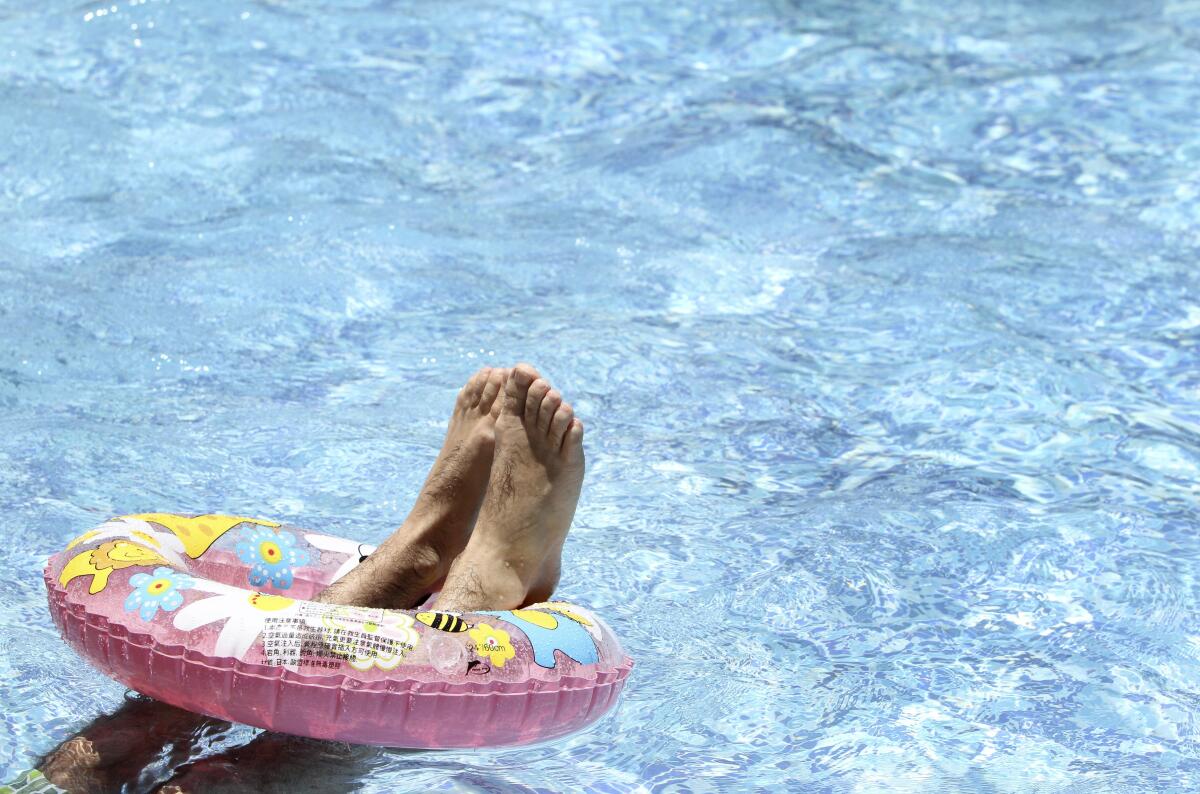How to earn money without working — much, anyway

- Share via
If you don’t want to work forever, you might want to look for ways to generate passive income — money you get without toiling. Much of the income you earn from passive sources is taxed at preferential rates. Translation: You keep more of it.
Generating passive income usually does require assets. But you may already own them.
We picked our favorite questions — now you get to choose which question we answer first.
A number of online platforms have formed to help people generate passive income by renting out possessions they already have. These possessions can range from big things such as whole houses and cars to smaller ones that you may never have considered particularly valuable, such as your driveway, attic space, carpet cleaner or tools. Some platforms enable artists to earn royalties and licensing fees for the use of their art.
About taxes
When you earn income from work in the United States, you’re subject to a host of taxes, such as state and federal income taxes, as well as employment taxes that fund systems such as Social Security and Medicare. Passive income is taxed differently and, generally, less heavily.
Some forms of passive income are not taxed at all. If you, for instance, earn thousands of dollars renting out your personal residence for up to 14 days a year, that income is tax free. (Beware, though: If you rent out your home for even one more day, all that otherwise tax-free income gets thrown into the taxable column.)
Most other forms of passive income are taxable. But unless you turn your passive income into a part-time business, you’ll at least avoid employment taxes on the revenue, says Mark Luscombe, principal federal tax analyst with Wolters Kluwer.
Even when income from mostly passive activities — like renting out your personal possessions — is classified as self-employment income, you can qualify for tax breaks that are likely to drastically cut Uncle Sam’s take. Specifically, self-employed individuals can deduct all the expenses required to earn this income before determining the taxable portion of the revenue. There’s also a special 20% deduction that further reduces the taxable portion of self-employment income, Luscombe says. But you should seek professional tax guidance to determine which rules affect which forms of your revenue. The U.S. tax code is complex and full of land mines.
Stock dividends
The most common way to earn passive income is to invest in dividend-paying stocks. In most cases, the dividends on long-held investments are considered “qualified,” which means they would be subject to a maximum tax rate of 20%. (That compares with the top tax rate of 37% for earned income, which is also subject to FICA tax.)
But dividend income is rarely generous. The typical stock will pay between 2% and 4% of its value each year in dividends. That means it could take more than 20 years for the dividends to add up to the value of your initial investment. That said, there’s no work involved in earning income with dividend-paying stocks. Other forms of passive income are more generous but somewhat less passive.
Art royalties
If you’re a good artist — or even a clever slogan writer — you can earn royalties or licensing fees by uploading your art and allowing it to be sold on various products, such as coffee mugs and iPhone cases, made by print-on-demand companies. These companies, the best of which include Fine Art America and Redbubble, make, market and mail the products, and license the art that decorates the items. Artists set their own royalty rates. The print-on-demand operation adjusts the price of items to reflect your take.
If a T-shirt or puzzle costs $20 to make (and market and mail) and you set your royalty rate at 20%, T-shirts with your design would sell for $24, and you’d earn $4 each time one was sold. Once you recover the cost of your time and any art materials, additional sales mean additional revenue without additional work.
Your home
You can also earn semi-passive income by renting out all or part of your personal residence. Let’s say you list your house to rent while you take a two-week vacation. If you list on Airbnb, you can charge a nightly rate plus a cleaning fee. Airbnb will deduct a commission to compensate itself for advertising your rental and collecting payment. If you rent out your house for $250 a night after Airbnb costs, that’s $3,500.
This is semi-passive income since there is a bit of work involved. You need to take photos of your home, list it on a website, respond to potential renters and arrange to have housekeepers do the cleaning. All told, that’s likely to take an hour or two per rental.
Airbnb is not the only site that will rent out your home. You can also rent your home to tourists through Vrbo. And you can rent to movie producers and event planners through Giggster, Peerspace and Splacer, among others. These sites encourage you to charge by the hour, which can enable you to earn four to five times what you’d get with Airbnb or VRBO. But there are unique risks with having movie productions and events at your home. Be sure to collect a deposit for potential damage and consult your insurance agent.
If you don’t want to rent out your house but are OK with letting people use your swimming pool, you can sign up with Swimply. The same cautions apply.
Your belongings
Dozens of online platforms will help you rent out your personal items.
BabyQuip can help you rent out cribs, high chairs and other baby gear to travelers who need it while on vacation. FriendWithA helps market personal items such as tools and sporting equipment. KitSplit and ShareGrid can help you rent out cameras, photography and video equipment.
Got a boat? You can try Boatsetter or GetMyBoat. RV? List it for rent on RVshare, Outdoorsy or RVnGo. Spare parking space? List it on CurbFlip, ParqEx or Pavemint. Unused storage space? Check out Neighbor or Stache.
If you’ve got an extra car, you can rent that out to tourists through Turo or to Uber and Lyft drivers through HyreCar.
Kristof is the editor of SideHusl.com, an independent site that reviews hundreds of money-making opportunities in the gig economy.
More to Read
Inside the business of entertainment
The Wide Shot brings you news, analysis and insights on everything from streaming wars to production — and what it all means for the future.
You may occasionally receive promotional content from the Los Angeles Times.











